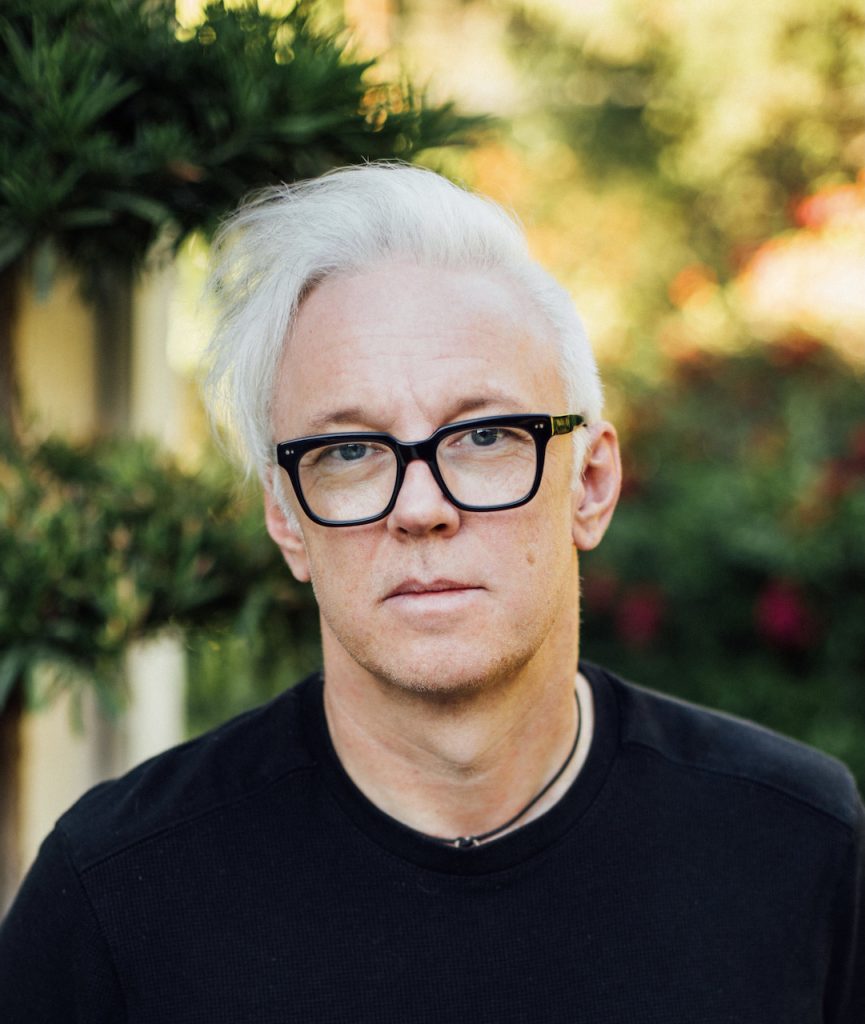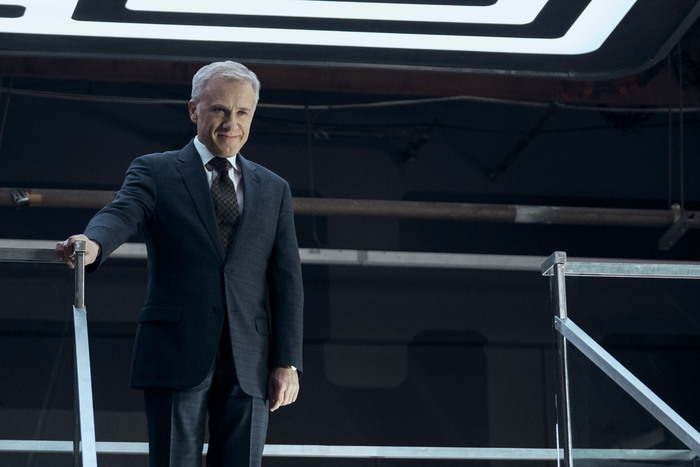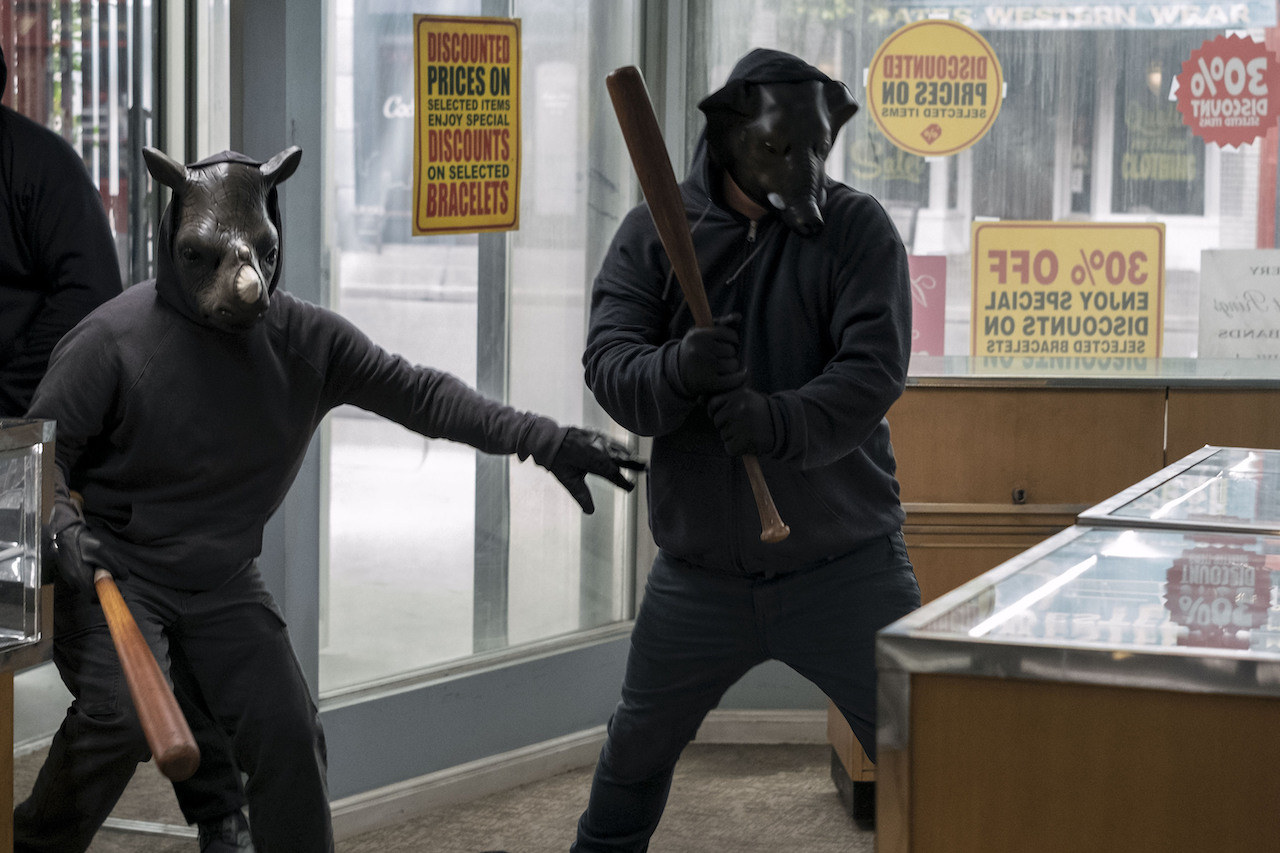Tony Basgallop, the U.K. native’s credits include a slew of notable British TV movies and series. His latest foray into the thriller realm is the upcoming Amazon Studios series The Consultant, a Stygian The Office and stars the mercurial Christoph Waltz as Regus Payoff, the titular boss from hell. Tony recently spoke with Creative Screenwriting about the nuts and bolts of writing the television thriller.
Writing Roots
I started writing comedy back in England when I was nineteen. Without any training or weird ambition. I started writing some sitcom pilots and I worked on a sketch show when I was twenty-one. I started in comedy and slowly drifted into drama, learning how to write characters and story. When I started, I didn’t know anything. I just had a piece of paper. I gradually learned what I didn’t know, and it took several years.
Around 1995, I sold a film to the BBC that didn’t get made, but it was developed. Around that time, I started working on EastEnders. That’s where I was able to say, “Hey, that’s my first episode.” That was 1996.
I used to rush my writing. Thinking you know it before you know it. It’s a fine line because you have to have confidence when you write. I can’t get through a script unless I feel like it’s amazing, even if I’m just convincing myself. In your own head, it has to be great.
There’s that balance. Sometimes confidence spills into arrogance and you think you know what you’re doing. But every year you learn something new.
British and American television has changed over the years. Also, overall TV has changed. I came to America in 2012. At that time, I’d worked in every genre and on every channel in the U.K. I was running out of things to do, so I wanted to come to America for that challenge. Big writers’ rooms. Different budgets. But since I’ve been here, the U.K. has changed as well. It’s become more of a global television arena. Ten years ago, it was more localized. The British shows didn’t often come here. American shows didn’t often go there.
My structure is a little different to a lot of other writers. I crave the blank page. I know writers who need to have every single beat detailed out before they start writing. That works for them and that’s great. I had a lot of creative freedom on The Consultant, including from Amazon. They backed the vision early on and allowed me to take it in the direction I wanted.
From the House to the Workplace
I got introduced to The Consultant after I’d just come off the back of doing Servant. Having written about this family locked in this house for years of my life, Coming out of that, I wanted to do something that was in a public space. I wanted to do something in the work environment. Something where people are leaving their homes and forming a different world with their jobs. My initial thought was I just wanted to do a workplace thriller. Then one of the producers, Andrew Mittman, gave me this book The Consultant which I hadn’t read before. There was something in the premise of that and in the character of Regus Patoff that I thought, “This is such a great way to begin a workplace thriller.” It was a combination of wanting to do something in that genre and then finding the book that attracted me to it. I feel like Bentley Little, the author of the book, and I share a very dark sense of humor. When I read the book, I thought, “This guy is on my wavelength.” I felt a bond with the style that he was writing.
This wasn’t my first adaptation, though. I did a series of three films for BBC2 called To the Ends of the Earth with Benedict Cumberbatch back in the mid-2000s. The Consultant adaptation was different though because I felt that although this book had an incredible tone and voice to it and a great protagonist in Regus Patoff, it felt more like it was going to be a horror movie than a tv show. I had to think about the longevity of these characters so I had to rework the main story within the work place. Whereas with To the Ends of the Earth, I was adapting some very well-known novels. They were much more true adaptations from the author’s work. They were historical so I didn’t want to venture off. The Consultant is more of an interpretation that embodies the style and tone that Bentley Little set up for us. It was a very different approach but equally fun.

Tony Basgallop
Leanne from Servant resembles Regus a tad because they both fit the notion of someone coming into an environment that you don’t know or entirely trust. That’s something I write often. I like to bring new elements into established situations, like a family or workplace. Something that shatters the illusion.
Regus represents the bully in life for all of us. That thing you have to stand up to. That thing where you can’t change their opinion on anything. He’s the one that can reward you and punish you at the same time so you never where you are. You don’t know if you’re going to be promoted or fired. It’s that dangerous thing we have in our jobs that relies on success or failure. He encapsulates that for us.
The staircase symbolizes him rising up from below. It represents him ascending above everyone and looking down. He’s the boss from hell, literally or metaphorically, it’s up to you. The staircase is red and there’s a lot of red in the show. Gives it that devilish aspect, although we never specifically state who he is or what he is in Season One. There’s always that fear of, “Is he something bigger than we can deal with? Something larger than life?”
I didn’t have a writers’ room for this. I did the same thing that I did with Servant. I’ve worked with other writers before and it was great. But for this one, it was better for me just to lock myself away until I got it right.
Perspective
I’d written the pilot episode. We started thinking about taking it out. and selling it to a broadcaster. Matt Shakman had just come out with WandaVision, which blew everyone away. His attention to detail, the way he worked with those characters in a thirty-minute format…it just felt like he had a real knowledge of television and genre. We sent him the script and he responded to it. He was full of good ideas and enthusiasm. He came on board straight away.

Regus Patoff (Christoph Waltz) Photo by Michael Desmond/ Prime Video
The first stage was getting Matt Shakman involved. Getting Christoph Waltz was the second stage. We thought we needed to start with Regus Patoff because once we cast that, it would be easier to decide who would be his victim or who’s around him. Matt and I went through a list, what seemed like a short list, of people who could do this. When Christoph’s name was mentioned, we raised one eyebrow and thought casting him would be interesting. I’d written it without anyone in mind. Matt and I got the script to Christoph and he responded. We met for coffee and we did our best to convince him that he should be doing this returnable tv series. He believed in us and the material and put his faith in us and as a professional said, “Okay.”
Clocking Back In
I do have the second season in my head. Whether it’s going to be the same once we get to Amazon saying yes or no, I don’t know. But I’ve got a lot of things I’d like to do with this character. We’ve just met him. I love the opportunity for him to cause mischief.
At the moment, I’m at a place where I really enjoy doing anything contemporary, anything in modern times. We’re living in such odd times, things are changing so quickly…I’m embracing that. I enjoy watching a lot of historical thrillers and period dramas, as we call them in England, but right now, when I’m writing something, I like it to be in the present.
With writing for television, I like that promise of what’s to come. Ending the episode and knowing that there’s something more. I grew up on television not on movies, so I feel I’ve been indoctrinated into that way of thinking. I love short, fast television that promises you an explosion next week. I love the cliffhanger.
I can’t write in public because when I write, I move my lips a lot. I get paranoid that someone’s watching me and they know what I’m saying. As long as I can shut myself away and not have any interruptions, the environment works for me.
My structure is a little different to a lot of other writers. I crave the blank page. I know writers who need to have every single beat detailed out before they start writing. That works for them and that’s great. I had a lot of creative freedom on this one, from Amazon as well. They backed the vision early on and allowed me to take it in the direction I wanted.

